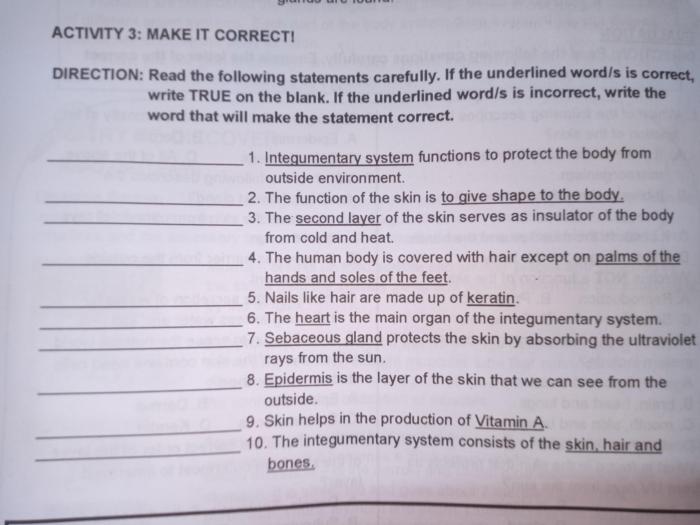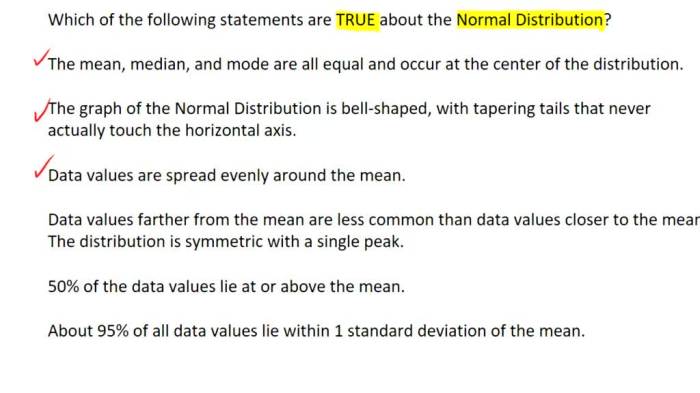Which of the following statements about hypnosis is true? Delve into this captivating exploration that separates fact from fiction, unraveling the enigmatic nature of hypnosis and its multifaceted applications.
Prepare to be mesmerized as we embark on a journey into the realm of hypnosis, uncovering its origins, techniques, and profound effects. Together, we will dispel common misconceptions and establish a comprehensive understanding of this intriguing phenomenon.
Definition and Nature of Hypnosis: Which Of The Following Statements About Hypnosis Is True

Hypnosis is a state of focused attention and heightened suggestibility. It is characterized by a heightened awareness of the hypnotist’s suggestions and a decreased awareness of the surroundings. During hypnosis, the subject may experience vivid imagery, relaxation, and an altered sense of time.
Hypnotic phenomena include analgesia (reduced pain perception), hyperesthesia (increased sensory sensitivity), posthypnotic amnesia (forgetting events that occurred during hypnosis), and age regression (reliving past experiences).
Various theories exist about the nature of hypnosis, including the state theory (hypnosis is a distinct state of consciousness), the role theory (hypnosis is a social role), and the dissociation theory (hypnosis involves a dissociation of the conscious and unconscious minds).
Techniques of Hypnosis

Hypnosis can be induced through various methods, including verbal suggestions, eye fixation, and relaxation techniques.
The hypnotist plays a crucial role in guiding the subject into hypnosis and maintaining the hypnotic state. The subject’s willingness to participate and belief in the process also influence the effectiveness of hypnosis.
Specific hypnotic techniques include the Elman induction (using eye fixation and verbal suggestions), the Erickson induction (using indirect suggestions and storytelling), and the Stanford Hypnotic Susceptibility Scale (measuring an individual’s susceptibility to hypnosis).
Effects of Hypnosis

Hypnosis has both physical and psychological effects.
Physically, hypnosis can reduce pain, promote relaxation, and regulate bodily functions such as heart rate and blood pressure.
Psychologically, hypnosis can improve mood, reduce anxiety, enhance memory, and promote positive behavior changes.
Hypnosis has been used for therapeutic purposes in settings such as pain management, anxiety reduction, smoking cessation, and habit modification.
Myths and Misconceptions about Hypnosis
Common misconceptions about hypnosis include the belief that it is a form of mind control or that it can only be performed by specially trained individuals.
These misconceptions are inaccurate. Hypnosis does not involve mind control or coercion. It is a collaborative process that relies on the subject’s willingness to participate.
Research has shown that hypnosis is not limited to specially trained individuals and can be induced in most people.
Ethical Considerations in Hypnosis
The use of hypnosis is subject to ethical guidelines.
Potential risks include the possibility of posthypnotic suggestions being used for unethical purposes or the induction of hypnosis in individuals with certain psychological conditions.
To ensure ethical practices, hypnotists should obtain informed consent, use hypnosis only for legitimate purposes, and maintain the subject’s well-being.
Query Resolution
Is hypnosis a form of mind control?
No, hypnosis does not involve surrendering control of one’s mind. Rather, it is a state of focused attention and heightened suggestibility, where individuals remain fully conscious and in control of their actions.
Can hypnosis cure all illnesses?
While hypnosis can be a valuable therapeutic tool, it is not a miracle cure for all illnesses. However, it has been shown to alleviate symptoms and improve outcomes for a wide range of physical and psychological conditions.